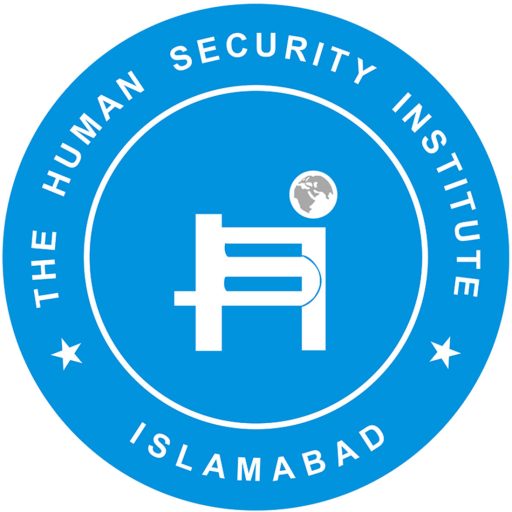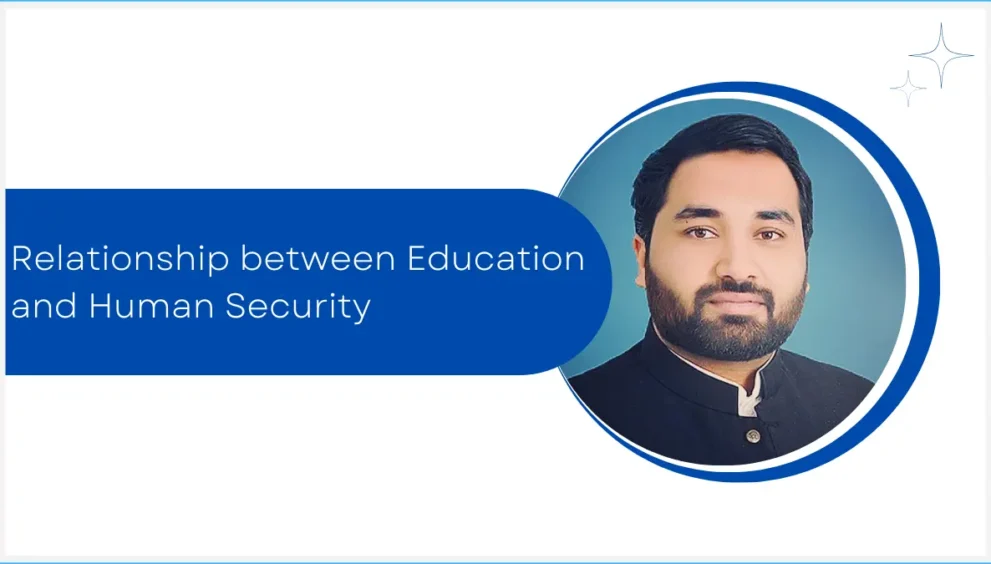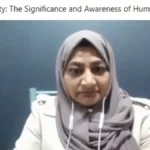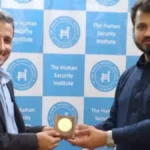By Zafar Khan
Japan’s former Prime Minister Prime Minister Obuchi Keizodescribed human security as the central idea in “comprehensively seizing all of the menaces that threaten the survival, daily life, and dignity of human beings and to strengthening the efforts to confront these threats.” In 21stcentury, the discourse on security has evolved from state centered understanding of security to the individual security in which life, liberty, and dignity of individual are to be respected and ensured. Individual security refers to an integrated and inclusive approach oriented at the socio-economic and political emancipation and well-being of individual. In this regard, where provision of safe drinking water and food to sustain life is crucial to human security, education is an equal imperative.
Amartya Kumar Sen, an Indian economist who was awarded the 1998 Nobel Prize for his contribution to welfare economics, finds a direct link between education and human security. According to him, education is the driving force in the struggle to emancipate people from misery, insecurity, and poverty. His study entails five leading claims.
“Education is the driving force in the struggle to emancipate people from misery, insecurity, and poverty”.
First, illiteracy, according to Sen, is a form of insecurity as it limits an individual’s potential to compete and correspond in a social setup. An illiterate individual naturally feels insecure when s/he encounters a literate and educated counterpart who has the basic knowledge and skill to compete and ensure his survival and security. Therefore, the first and foremost task of the agency in authority, whether it is state or non-state organization, is to ensure literacy to mitigate the basic sense of incompetence and insecurity.
Secondly, education is the most meaningful weapon to secure livelihood and employment in today’s world. The connection between literacy and employment is critically important in rapidly globalizing world. The unprecedented competition in job market has absolutely minimized the chances on an uneducated individual to get employment and earn livelihood which is the most crucial aspect of human security. Hence, education lies at the heart of discourse on human security.
Third, an educated person is aware of his legal rights and responsibilities in comparison to an illiterate who lacks consciousness of his legal rights. For instance, the illiterate and poor of Pakistan are incognizant of the fact that the constitution gives them right to equality under article 25 and right to free compulsory education under article 25-A of the constitution of 1973. Moreover, illiterate women suffer the most in this regard who find themselves trapped in exploitative socio-economic and political structures without the realization that they enjoy equal rights protected under the constitution.
Fourth, political consciousness of a society in general and that ofindividual in particular is imperative to an inclusive and responsive political system. In this regard, education may prove an instrumental force as it creates political awareness among the masses. An educated person is mindful of his political rights and knows when and how to voice his concerns. On contrary, an illiterate remains at the mercy of the political system whether it is responsive or not. This is the reason that the state of human security is alarming in third world countries where the masses are politically passive and backward waiting innocently for the extractive governmental systems to come to their aid.
Finally, Sen considers education as a bearer of women empowerment as an educated woman is mindful of her individual rights and responsibilities. It enables her to earn an independent livelihood helping in cutting loose the chains of dependency. Moreover, studies recommend that education of women reduces infant mortality rates as evident from the comparison of infant mortality rates between the developed and underdeveloped countries.
Amartya Sen’s understanding of correlation between education and human security enables us to draw a worthy conclusion that education is the most crucial factor is pursuit of human security. In fact, education is the enabling factor to generate a debate on the concept and practice of human security which can eventually lead a wider understanding of the concept, particularly in the developing and the underdeveloped world where people lack access to basic needs to maintain a healthy life.
Where the concept of human security is making grounds in the developed world, Pakistan lags far behind according to its socio-economic indicators. According to the Spectator Index, Pakistan stands 94th in the list of global quality education. Moreover, the World Health Organization ranked Pakistan 122 out of 190 countries in performance of health sector. The story of woes does not stop here, the declining water availability in Pakistan rings the alarm bells. Pakistan stands third in the list of countries facing acute water shortage. Amidst the gloomy picture of Pakistan’s performance in socio-economic development, there is a dire need to generate a debate on the subject.
It is ironic that human security, a concept pioneered by Dr. Mehbubul-Haq, a Pakistani, could not find resonance in his own homeland. Therefore, an all-inclusive and integrated approach is required to address the issue of human security in Pakistan as the country has a long way to travel to ensure security and well-being of its people.
In this regard, education can play an effective role as it can educate people regarding their rights and duties. This can be achieved by adopting a multipronged strategy. First, a sustainable investment in provision of literacy to widespread populace can prove beneficial. Second, incorporation of the discourse of human security in curriculum may enhance the understanding about the aspects of human security eventually leading to an increased demand for the fundamental rights to ensure a healthy life. Lastly, a cooperation between research-based think-tanks and respective government agencies can lead to an integrated approach to find workable solutions to the mushrooming challenges to human life and happiness.



